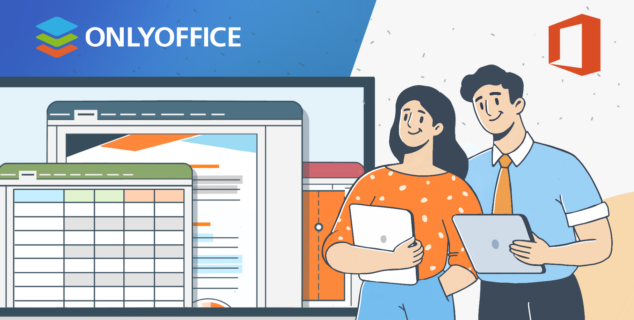Top 7 reference management software 2025
Reference and citation management for research papers, theses, scientific reports and other types of academic work is what researchers, scientists and students do on a regular basis. Over the last few years, this process has become much easier and more effective thanks to the usage of reference management software. In this article, you will get familiar with some of the top programs of this type along with their features and advantages.

What is reference management software?
Reference management software, also commonly referred to as citation management software, includes tools and computer programs that help scientists, researchers and students collect, manage and share bibliographic references and citations used in their research. Such applications enable you to create and manage all your bibliographies in one place as well as import citations from Internet sources, websites and digital libraries.
Some reference management tools also support different content allowing you to organize and save PDFs, screenshots, images, graphs, photos and other materials that you can use for research purposes.
As a rule, these applications are web-based, which makes it possible for researchers to access their data from any device, including mobile phones. Some tools also come with a desktop version that allows for more useful features.
Here is what you can do with a typical reference manager:
- Search for citations;
- Collect and store references in a single database;
- Manage notes and annotate PDFs;
- Format references in accordance with the required referencing style;
- Insert in-text citations into your documents;
- Generate reference lists or bibliographies based on your citations;
- Share your collection with other researchers;
- Sync your reference database across multiple devices.
Reasons why you should use reference management software
There are several reasons why scientists, researchers and students should use citation management software:
- It significantly saves your time: you don’t have to type each reference manually.
- It helps you to stay focused on your research: it keeps track of all books, articles and manuals you have read during the research process making sure you won’t miss anything.
- It makes the research process organized and well-structured: all your references are stored and managed in one place accessible from various devices.
- It guarantees consistency: citations are created automatically so there is less opportunity for inaccuracy and human errors.
Drawbacks to keep in mind
Despite all the useful features that reference management software offers, there are some drawbacks that you must keep in mind:
- It may not be able to create a perfect reference list or bibliography automatically in accordance with your preferred style. There may be some additional citation requirements you’ll need to adjust to it manually.
- There may be typos, grammar errors or omissions in references downloaded from Internet databases and sources so you still have to check everything carefully and be ready to correct possible mistakes.
- There are plenty of citation styles applied in different disciplines so you need to be familiar with the ones used in your research area. Taking this into consideration, you can’t blindly rely on the styles suggested by your reference management tool and should know all the main citation requirements.
Now that you know what reference management software is, let’s take a look at the best tools available today.
Best 7 reference management software in 2025
1. Mendeley

Mendeley is a popular reference manager that allows you to work online with other researchers while efficiently managing your references. This is one of the best software packages available for sharing, organizing, storing and managing research data that finds wide application in famous universities and research institutions around the globe.
Using Mendeley, you can quickly create bibliographies in an automatic manner, import articles and papers from various sources and build your personal library to store all content on the subject you are working on.
In addition to a free desktop client that is available on Windows, Linux and macOS, Mendeley also allows you to access your personal databases via a web browser.
What else makes Mendeley a great tool is the ability to integrate the reference manager with office software. For example, there is an official add-on for Microsoft Word. Another great integration example is a Mendeley plugin for ONLYOFFICE Document Editor, an open-source word processor.
When installed and configured, the ONLYOFFICE plugin for Mendeley allows you to create bibliographies automatically and insert citations from your Mendeley library into your document as you type. You can choose from MLA, APA, Chicago, Harvard and other popular citation styles when adding references and edit your bibliography using the set of tools provided by the ONLYOFFICE editor.

2. Zotero

Zotero is another popular reference management tool that makes it easier for researchers and students to collect, store, manage, share and cite sources. This service is open-source and provides free access to thousands of books and papers that you can cite and refer to in your research work.
Zotero is very simple to use and supports more than 10,000 citation styles, which makes it a universal solution. Using this service, you can create your own library and share it with other people at no cost.
Zotero is a web-based tool but it also comes with a standalone application for all operating systems, and its connector is compatible with all modern browsers, such as Firefox, Chrome, Edge and Safari.
With Zotero, you can easily create references and bibliographies from many text editors, namely Microsoft Word, LibreOffice and Google Docs. There is also a special plugin for the ONLYOFFICE text editor. To create a bibliography or cite a source in ONLYOFFICE, you just need to add your Zotero account, tick the desired sources, select a style from the drop-down list, and click the Insert button.

Manage your Mendeley and Zotero references in ONLYOFFICE
If you use Mendeley or Zotero, you can easily create bibliographies and insert citations in ONLYOFFICE Document Editor while working on your documents and even switch between these services if necessary as ONLYOFFICE has plugins for both. Manage references offline on Windows, Linux or macOS with a free desktop app or register a free DocSpace account to be able to work online in your web browser:
Watch this video to learn more about the ONLYOFFICE plugins for Mendeley and Zotero and how you can use them to create bibliographies:
3. Paperpile

Using Paperpile, a citation manager designed for Chrome and Google apps, you can not only manage your online reference library but also collect PDFs, import data from online sources, share papers with other people and even edit references collectively in Google Docs.
Paperpile has a clever and user-friendly interface that makes it possible for you to work effectively. Using Paperpile, you can store your content in Google Drive and sync it between multiple devices. The Google Docs integration allows you to work collaboratively with other people, which makes the process of reference management simpler.
Apart from the Google ecosystem, Paperpile also integrates with MS Word and offers mobile apps for iOS and Android. The service is not free but you can try it out during a 30-day free trial period.
4. Papers

Papers is a powerful reference manager designed to enhance your productivity as a researcher by organizing a single smart database with access to more than 130 million articles. You can sync your personal Papers libraries with all your notes, lists and annotations across your desktop (Mac or PC), browser and mobile apps, and access them from any device.
In Papers, you can make dynamic annotations and add sticky notes for better navigation when working on your content. The built-in citation manager is compatible with more than 9,000 styles and even lets you create a unique one.
When managing your research data stored in the Papers library, you can create tags, labels, and lists to keep everything organized. You can also create shared folders and make them accessible to other people, which is great for collaboration.
Papers has no free plan but a 30-day free trial period is more than enough to check the functionality of this reference management software.
5. JabRef

JabRef is another open-source reference management tool that uses BibTeX as its native format. Due to its high compatibility with various formats, it’s a good choice for text-based typesetting systems, like LaTeX and Markdown.
Using JabRef, you can easily edit, search, view and import references in different formats. When looking for new information, you can even import new references from your web browser with the official browser extension. There are also free apps for Linux, Windows and macOS.
With JabRef, you are allowed to search for articles in ACM, IEEEXplore, Google Scholar, DOAJ and other catalogues based on ISBN, DOI, PubMed-ID and arXiv-ID parameters. The tool also offers a lot of features for data sorting and filtering allowing you to stay focused on your goals.
JabRef is free but you are always welcome to make a donation on its official website to support the project and its developers.
6. EndNote

EndNote is a popular reference management assistant designed for individual researchers, academic institutions, libraries, organizations and non-profits that need a reliable and affordable solution for their research activities. The core idea behind this project is to help you stay organized and save your time while enabling you to collaborate on your research with other people. What this means is that you can add up to 1,000 people to your personal library and grant them permission for access and editing.
Using EndNote, you can access your research papers directly from the cloud or insert citations in Google Docs and Microsoft Word. Offline work is also possible due to a desktop application. Interestingly, you can manage your personal library on the go with the official app for iPads, which makes research effortless.
When it comes to reference management, EndNote users can use customizable tags, and your collaborators can view those tags if their have access to your library. With different tags and colors, you can quickly organize your references.
If you want to build a bibliography, EndNote lets you choose from more that 7,000+ output styles and create your own customized styles if you need.
EndNote is not available for free but offers a 30-day trial. There is special pricing for institutions and libraries.
7. RefWorks

RefWorks is an easy-to-use reference management platform that provides only cloud-based access. The biggest advantage of this approach is that you always have access to your library via your web browser, and there are no synchronization issues across various devices. Moreover, RefWorks offers you the same user experience no matter which platform you are working on — a single interface with the same set of features is always at hand.
As the only browser-based product, RefWorks is ideal for collaborative work. You can organize and annotate papers individually or share them with other RefWorks users so collaborating on group projects in real time sounds like a no-brainer.
Like all the other options on this list, RefWorks supports integration with popular writing tools, such as Google Docs and Microsoft Word. Using the RefWorks official add-on, you can work on your research from any device and insert citations as you type.
With more than 6,000 citation styles, RefWorks is the right choice for any research. If you need a unique citation style, the built-in citation style editor allows you to create one with custom fields and elements.
There is no free plan but you can request a free trial if you want to give RefWorks a try.
Conclusion
Although each option on the list above has advantages and disadvantages, the decision ultimately comes down to personal tastes and requirements. It’s vitally important to select software that offers strong reference management features, seamless integration with other tools and databases and ease of use. Your budget also plays a major role because some tools are not available for free.
Useful links
More information about ONLYOFFICE: desktop editors / online editors
ONLYOFFICE plugins: Zotero / Mendeley
Updated Zotero plugin for ONLYOFFICE
Create your free ONLYOFFICE account
View, edit and collaborate on docs, sheets, slides, forms, and PDF files online.


